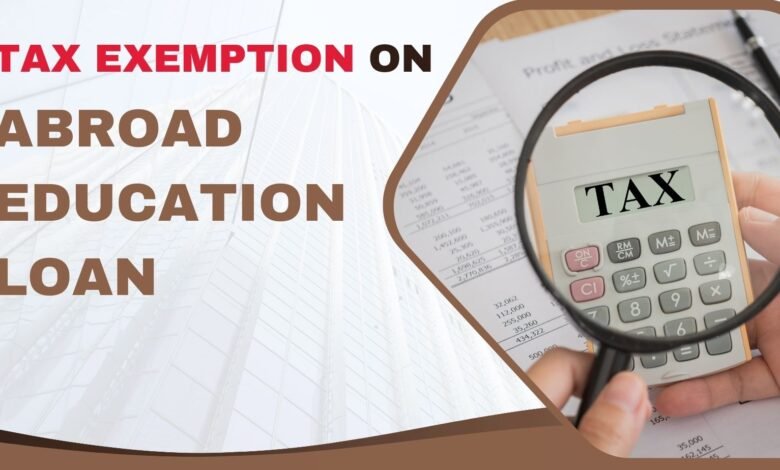
Moving to a new country to study opens a world of new opportunities. Education loans enable students to pay for their education. Taking an education loan not only safeguards your finances but also saves your money.
If you are perplexed and thinking about how an education loan can save you money? Well to answer this question keep reading to know more about Section 80E. This knowledge will be beneficial when you take an education loan for abroad studies.
Understanding Section 80E?
Section 80E of the Income Tax Act of India, 1961 provided tax deduction on the interest paid for your education loan. This benefit can be claimed only after the loan repayment has been started. This tax benefit can be claimed by the applicant or the co-applicant. Section 80E benefit can only be claimed if the education loan is taken from nationalized or private banks. The tax benefit can be claimed for 8 years, it starts with the loan repayment. So even if your loan period exceeds 8 years, you can claim the benefits for the initial 8 years only.
Benefits of claiming an education loan income-tax exemption under Section 80 E
Some of the key benefits of claiming income tax exemption under section 80E are
- This benefit can be claimed by either the applicant or the co-applicant of the education loan.
- The benefit can be claimed as soon as you start repaying your loan.
- Tax exemption can be claimed for 8 years
- Parents can claim this deduction for the loan taken for the higher studies of their children.
Now that you are aware of the benefits, let’s proceed to understand how you can avail yourself of these benefits. Keep reading to understand the steps to claim the education loan income tax exemption.
Steps to Claim the Education Loan Income Tax Exemption
- If you are an employee, you can avail of the tax benefit of overseas education loan by notifying your company so that less TDS is deducted from your salary.
- After stating the proof of your loan repayments, you can claim the amount when you file your annual TDS.
- Co-applicant can provide receipts of EMI as proof while declaring the TDS.
This tax exemption aims to benefit most loan applicants and co-applicants. However, in certain cases, they might not get the benefit of this exemption. Read to know more about this.
Circumstances in which you are exempted from claiming Section 80 E Benefits
- If the loan applicant is working outside India, then he/she will be exempted from this benefit.
- Retired co-applicant or if you are going to retire soon.
- Companies and Hindu Undivided Family (HUF) cannot claim a deduction
Now that you are aware of Section 80E, if you are willing to take an overseas education loan and you are confused about the loan process then you can take the assistance of an overseas education loan provider. They will also guide you about the best bank and how to get education loan for abroad studies without collateral.
Start your loan application today!
In conclusion, Section 80E of the Income Tax Act serves as a valuable provision for individuals seeking financial assistance for pursuing higher education abroad. The section allows for a significant tax exemption on the interest paid on loans taken for educational purposes, specifically for courses pursued outside India. This exemption provides a crucial financial relief to students and their families, encouraging them to pursue education opportunities overseas without bearing the entire burden of high-interest costs. By alleviating the financial strain associated with education loans, Section 80E plays a pivotal role in promoting accessibility to quality education and fostering global academic pursuits.
Furthermore, the tax benefits offered under Section 80E not only empower individuals to pursue their academic aspirations but also contribute to the overall development of human capital in the country. As education plays a fundamental role in shaping a nation’s progress, incentivizing the pursuit of global education through tax exemptions reflects a forward-thinking approach by the government. In fostering a conducive environment for education financing, Section 80E not only supports the aspirations of the individual students but also aligns with broader national goals of fostering a skilled and globally competitive workforce. Thus, the provision stands as a testament to the government’s commitment to education and its recognition of the pivotal role it plays in the socio-economic development of the nation.


